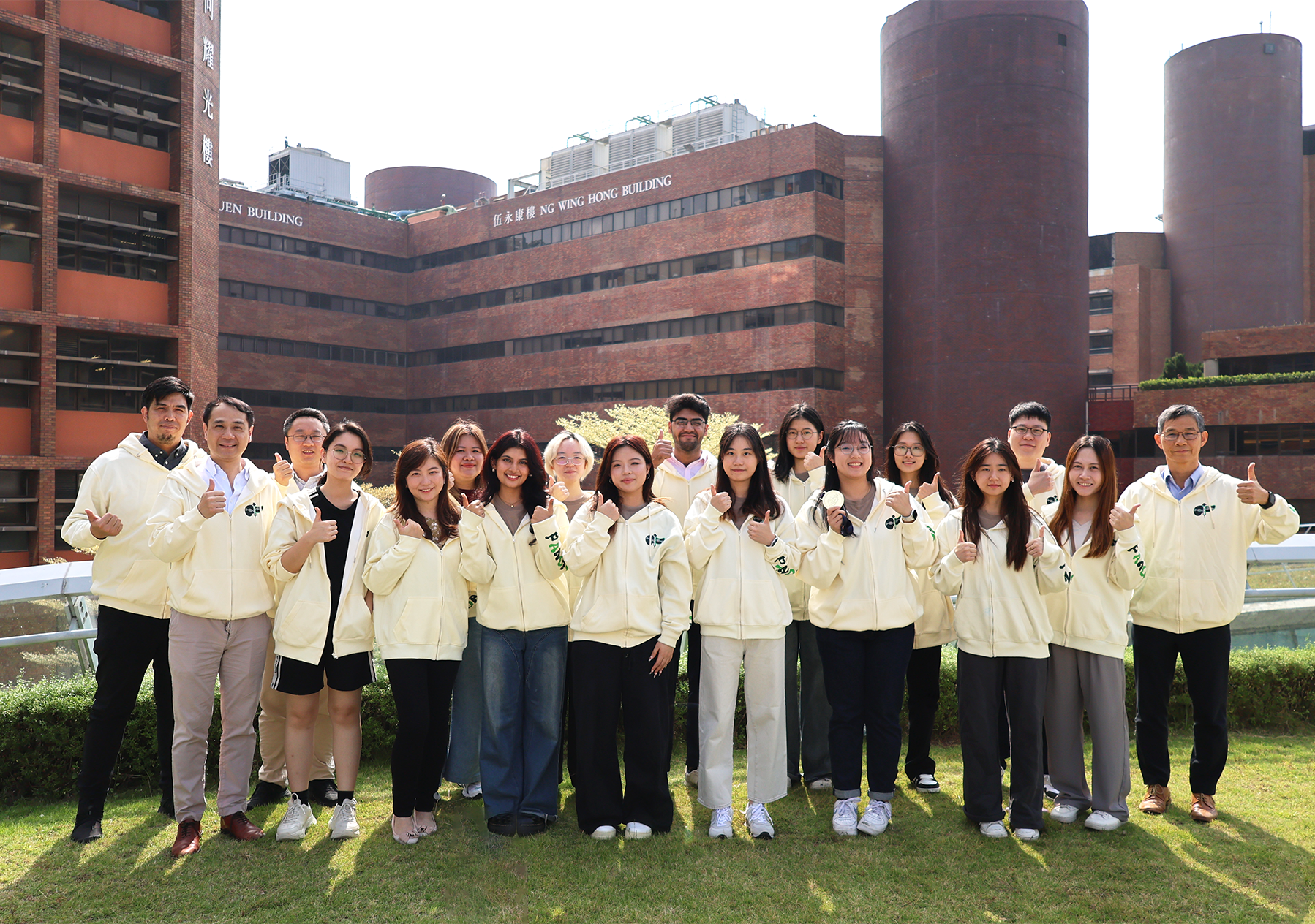PanoPOLY is a student-led initiative dedicated to advancing pancreatic cancer treatment, one of the most challenging and deadly cancers. Through the iGEM competition, their team developed a novel dual-targeting nanobody designed to overcome gemcitabine resistance in pancreatic cancer. By combining synthetic biology, innovative protein engineering, and community outreach, They aim to improve patient survival rates and bring new hope to affected families.
Their project earned a Gold Medal, ranked among the Top 10 undergraduate teams worldwide, and was nominated for Best Oncology Project and Best New Composite Part at iGEM 2024, recognizing both their scientific and societal impact.

Ms. AU Hiu Yeung Rowena
Ms. CHAN Yin Yan Carrie
Ms. HU Xinrui Linda
Ms. SUN Jiayan Eurus
Ms. ZHU Siya Kelly
Ms. CHAPAGAIN Swastika
Ms. LI Xiangyi Yoyo
Ms. LIU Chenyi Jenny
Ms. LI Pinxuan Christine
Department of Applied Biology and Chemical Technology
Faculty of Science
Mr. SHAIKH Muhammad Waris
Department of Electrical and Electronic Engineering
Faculty of Engineering
The team PanoPOLY learnt and understood the molecular and cellular mechanisms of pancreatic cancer is fundamental. This includes knowledge of tumorigenesis, cancer cell signaling pathways, mechanisms of metastasis, and especially the development of drug resistance (e.g., to gemcitabine). Familiarity with biomarkers such as EGFR and HER2, which are often overexpressed in pancreatic cancer, is also crucial for targeted therapy design.
Synthetic biology involves designing and constructing new biological parts, devices, and systems. PanoPOLY’s project includes the engineering of nanobodies with dual-targeting capabilities, genetic circuit design, and the use of molecular cloning and recombinant DNA technology to produce therapeutic proteins in host cells.
The team PanoPOLY has expertise in protein structure-function relationships, plasmid design, expression systems (e.g., bacterial or mammalian cells), and protein purification techniques. Understanding how to optimize protein stability, solubility, and binding affinity is essential for therapeutic application.
PanoPOLY’s knowledge of pharmacology is needed to understand how drugs like gemcitabine work, how resistance develops in cancer cells, and how new therapeutics can overcome this resistance. This includes studying drug mechanisms, pharmacokinetics, and the cellular adaptations that lead to reduced drug efficacy, as well as strategies to sensitize resistant cells.
PanoPOLY’s research on translational medicine bridges laboratory research and clinical application. This includes designing preclinical studies, considering regulatory and ethical aspects, and engaging with stakeholders (patients, clinicians, and the public). Human practices also involve community outreach, education, and integrating feedback from healthcare professionals to ensure the research addresses real-world needs and can be implemented in clinical settings.
The team PanoPOLY consistently demonstrated critical thinking and problem-solving skills throughout their research journey. For example, they faced difficulties extracting the required protein from cells and encountered repeated experiment failures. Despite these setbacks and the pressure of tight deadlines, they viewed challenges as opportunities to progress and refined their approaches accordingly.
Effective project management and teamwork were essential to the group’s success. Members balanced responsibilities by constructing detailed timelines and holding regular meetings to stay aligned. This collaborative approach strengthened their teamwork and enabled them to overcome obstacles, ultimately achieving their research goals.
Strong communication and presentation skills were developed as students managed laboratory work and coordinated the Integrated Human Practices (IHP) component. By working closely with professors and teammates, they learned the importance of clear communication, effective task coordination, and motivating others toward shared objectives.
The team PanoPOLY exhibited adaptability and flexibility when confronted with unexpected challenges, such as difficulties in building drug-resistant cell lines. They adjusted their strategies, sought advice from advisors, and demonstrated persistence and patience, which were crucial in overcoming obstacles and ensuring project stability.
Continuous improvement was a hallmark of the team’s approach. They frequently repeated experimental processes to achieve optimal results and viewed setbacks as valuable learning experiences. Through teamwork and persistence, they continually refined their methods and advanced both their project and personal growth.
The pursuit of knowledge is a lifelong journey! To further expand your knowledge and continue your personal and professional growth. Click and explore the following learning resources:
Protein Engineering and Biotechnology
Pharmacology and Drug Resistance
Translational Medicine and Human Practices
Critical Thinking and Problem-solving
Project Management and Teamwork